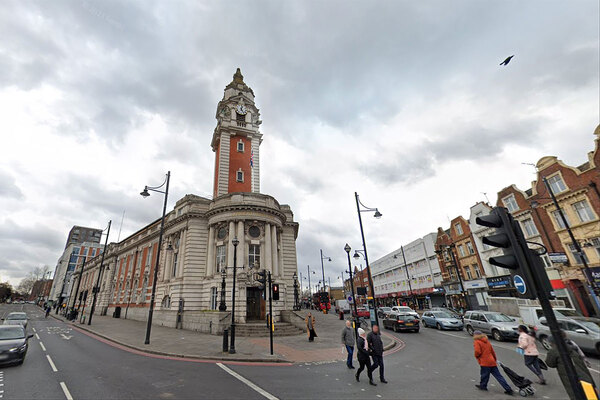 Jules Birch
Jules BirchThe other Bill
 Jules Birch
Jules BirchAs we gear up for more battles over the Welfare Reform Bill in the House of Lords, it’s worth remembering it’s not the only controversial Bill currently before their lordships that will have a big effect on housing.
Among a range of measures designed to cut costs, the Legal Aid Bill will limit legal aid in housing cases to cases involving homelessness or imminent loss of home and serious disrepair that poses a serious risk to life and remove most benefits work from the scope of the scheme. (Any lawyers out there feel free to correct this summary).
So far the housing aspects have not received as much attention as they should, which is perhaps not surprising when you consider the potential impact of restrictions of legal aid in family cases on victims of domestic violence and a rebellion by Conservative peers including Lord Tebbit against cuts in legal aid in cases of medical negligence.
On Wednesday the implications became much clearer (to me anyway) when the Lords debated the housing aspects at the committee stage. The ministerial villain may be different (former Labour and SDP MP Lord McNally) but the rest of the cast is similar to the one that will feature in the report stage debate on the Welfare Reform Bill on Monday.
Opponents of the Bill successfully teased out the way that its tightly drawn definitions of who will be entitled to legal aid under the new system risk excluding large numbers of people with serious housing problems without necessarily saving anything like the amount the government claims.
One big problem, said Lib Dem peer Lord Shipley, is that means that ‘although the government have said that the loss of the home will continue to be prioritised for legal aid funding, the Bill will in fact prevent advisors from resolving benefits problems that lead to eviction proceedings’.
Despite clear evidence that early intervention to resolve benefits issues can stop evictions, he went on:
‘The danger is that the exclusion of benefits work from legal aid will tie the hands of advisers who are trying to prevent homelessness and will lead to many more unresolved cases filling the county courts. The courts will have more adjourned hearings and will ultimately have to make more possession orders because there is no one to resolve the benefits issue. This could result in higher costs to the taxpayer as a consequence.’
A second problem is the drafting of the Bill to ensure that squatters cannot get legal aid to fight the loss of their home also means that anyone legally defined as a ‘trespasser’ cannot get help either. That could potentially affect all sub-tenants, tenants of landlords who are in default on their mortgages and joint tenants whose relationship breaks down.
Next out of the blocks was crossbencher Lord (Richard) Best, the hero of the successful Lords rebellion against the bedroom tax before Christmas. The private rented sector has no regulator or ombudsman, he pointed out, which put tenants in a completely different position to customers of utilities or the banks. ‘If tenants are in dispute with their landlords, the only way of obtaining redress may well be to go to court,’ he said.
Problem number three is therefore that disreputable landlords will see that any threats of legal action from their tenants were empty threats unless the case concerned the imminent loss of their home. He went on:
‘Informing bad landlords that, however awful their behaviour, they will not be taken to court is like telling Somali pirates that they will never be held to account if they board ships and demand fantastic ransoms. It seems bound to lead to an escalation of criminality.’
Problem number four was the sheer complexity of housing cases, meaning that there is no way tenants can cope without professional advice. ‘Take this away and not only will landlords be able to break the law with impunity but tenants who are ignorant of their entitlements or who are victims of incompetence at the hands of bureaucrats will never see justice.’
Lord Best concluded: ‘With benefits advice being taken out of scope and the likely closure of many citizens advice bureaux as a result, housing is badly affected by the Bill. This surely is one area of our national life where legal aid is essential. Its withdrawal will not only cause misery but will cost central and local government money in picking up the pieces.’
Problem number five was summed up by Labour peer Lord Howarth of Newport. While there would still be legal aid to fight illegal eviction, few tenants would want to go back to the same landlord. ‘Under the Government’s proposals, the worst landlords will be able to get away with the worst behaviour and their victims will not be protected and will not be able to obtain compensation.’
Problem number six is that all of this may not save much money. Peers raised again and again to the way that changes to save money on the Ministry of Justice’s budget will just shunt extra costs around Whitehall. An independent report by King’s College estimates that the government will save less than half of the £240m claimed from cuts in legal aid in family law, social welfare and clinical negligence cases. A report by Citizens Advice estimates that every £1 spent on advice on housing advice saves the government £2.34.
Needless to say, these arguments were rejected by Lord McNally for the government and opposition amendments were either withdrawn or not moved. However, exactly as with the Welfare Reform Bill, you sense that their lordships are not going to let this go without a fight further down the line.







